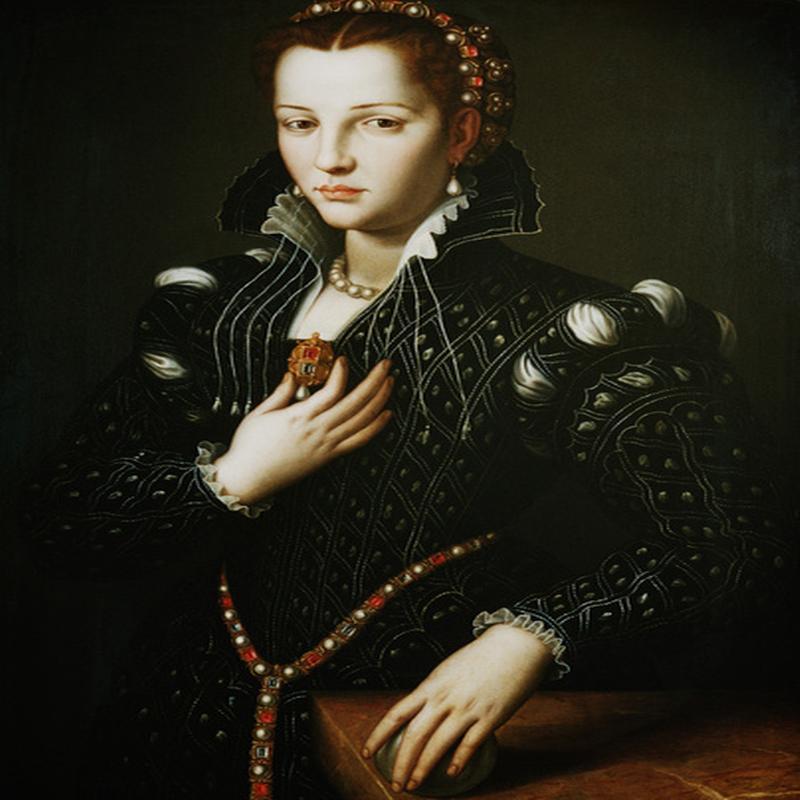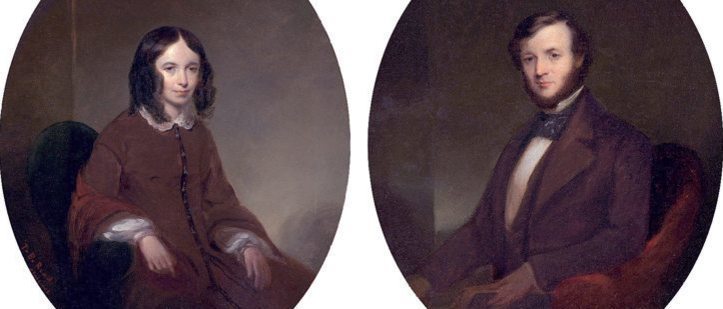Robert Browning: My Last Duchess
Posted on 8th January 2021
Robert Browning who was born in Southwark, London on 7 May 1812, is often portrayed as the epitome of the dashing Victorian poet, the man who had against all odds won the hand of the talented but sickly Elizabeth Barrett in a love affair that has since become the staple of romantic fiction and movie making but in his poetry he was no Byron or Shelley.
An argumentative man sceptical of the verities of romantic fantasy, poetry was for him an intellectual pursuit intended to be no less challenging to the reader than it had been for him the author. So much so, that despite remaining one of the Victorian eras most prominent Victorian literary figures the difficulty of his work would see his popularity wax and wane. Indeed, for the duration of his marriage to Elizabeth Barrett Browning (1846-61) it was his wife who was beloved and received most of the accolades and plaudits for her poetry replete as it was of love and loss without the cynicism and dark humour of her husband's more caustic pen.
So, for a time at least he would play second fiddle to his wife in what in the public imagination was the romantic couple of its age. But in truth it was a stormy relationship often played out in public no more so than in their long running dispute regarding the veracity of spiritualism.
Although few ever doubted that they were very much in love it was in the manner best expressed first in disagreement, then understanding and finally reconciliation.
The master of the dramatic monologue Browning would often place his work in an historical context and show rather than tell the reader of events, after all poetry is of the imagination it is not a picture painted on canvass to be admired for its brushstrokes. His technique of combining contrary rhythms and a complex syntax with historical imagination is no better expressed than in My Last Duchess which based on the marriage of Alfonso d'Este, Duke of Ferrara and his 14 year old bride Lucrezia de Medici who died three years later in mysterious circumstances remains one of his most popular and studied works with its sinister undertones and subtle evocation of the descent into madness and murder so spine-chilling that Edgar Allan Poe (an admirer) would have been proud.
Even now, My Last Duchess remains a challenge both in reading and understanding. Robert Browning would have appreciated that.

My Last Duchess
FERRARA
That’s my last Duchess painted on the wall,
Looking as if she were alive. I call
That piece a wonder, now; Fra Pandolf’s hands
Worked busily a day, and there she stands.
Will’t please you sit and look at her? I said
“Fra Pandolf” by design, for never read
Strangers like you that pictured countenance,
The depth and passion of its earnest glance,
But to myself they turned (since none puts by
The curtain I have drawn for you, but I)
And seemed as they would ask me, if they durst,
How such a glance came there; so, not the first
Are you to turn and ask thus. Sir, ’twas not
Her husband’s presence only, called that spot
Of joy into the Duchess’ cheek; perhaps
Fra Pandolf chanced to say, “Her mantle laps
Over my lady’s wrist too much,” or “Paint
Must never hope to reproduce the faint
Half-flush that dies along her throat.” Such stuff
Was courtesy, she thought, and cause enough
For calling up that spot of joy. She had
A heart—how shall I say?— too soon made glad,
Too easily impressed; she liked whate’er
She looked on, and her looks went everywhere.
Sir, ’twas all one! My favour at her breast,
The dropping of the daylight in the West,
The bough of cherries some officious fool
Broke in the orchard for her, the white mule
She rode with round the terrace—all and each
Would draw from her alike the approving speech,
Or blush, at least. She thanked men—good! but thanked
Somehow—I know not how—as if she ranked
My gift of a nine-hundred-years-old name
With anybody’s gift. Who’d stoop to blame
This sort of trifling? Even had you skill
In speech—which I have not—to make your will
Quite clear to such an one, and say, “Just this
Or that in you disgusts me; here you miss,
Or there exceed the mark”—and if she let
Herself be lessoned so, nor plainly set
Her wits to yours, forsooth, and made excuse—
E’en then would be some stooping; and I choose
Never to stoop. Oh, sir, she smiled, no doubt,
Whene’er I passed her; but who passed without
Much the same smile? This grew; I gave commands;
Then all smiles stopped together. There she stands
As if alive. Will’t please you rise? We’ll meet
The company below, then. I repeat,
The Count your master’s known munificence
Is ample warrant that no just pretense
Of mine for dowry will be disallowed;
Though his fair daughter’s self, as I avowed
At starting, is my object. Nay, we’ll go
Together down, sir. Notice Neptune, though,
Taming a sea-horse, thought a rarity,
Which Claus of Innsbruck cast in bronze for me!
Share this post:





